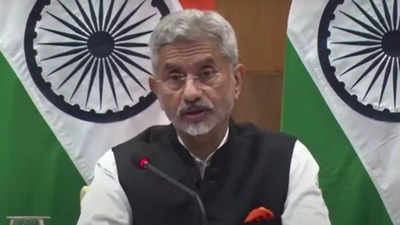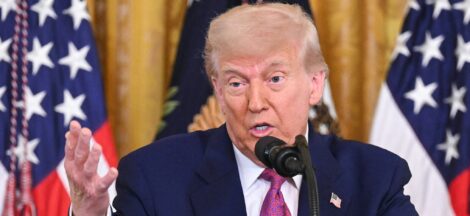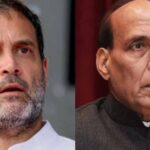External Affairs Minister S. Jaishankar has underscored that the strained relations between India and China cannot normalize without resolving the ongoing border issues. Speaking at a recent event in New Delhi, Jaishankar highlighted that the tension along the Line of Actual Control (LAC) has not benefited either country and stressed the necessity of adhering to existing agreements to restore stability.
Jaishankar expressed his commitment to finding a fair and reasonable outcome that respects the LAC and maintains the status quo. He emphasized that India’s stance is not influenced by political considerations but by the need for a genuinely fair deal. The minister pointed out that the border tension, which began in May 2020 with a violent clash in the Pangong Lake area, has significantly deteriorated bilateral ties. The conflict escalated with the deadly Galwan Valley clash in June 2020, marking the most serious military confrontation between the two nations in decades.
In his remarks, Jaishankar reiterated that normalcy in diplomatic relations with China hinges on the resolution of these border issues. He mentioned that despite ongoing high-level military talks aimed at maintaining peace and tranquility, there has been no significant breakthrough. Jaishankar conveyed that the presence of a large number of forces on the LAC is not in the best interest of either country and called for mutual adherence to agreements.
Jaishankar also touched upon India’s approach to international relations, highlighting the country’s growing influence on the global stage. He noted that India, now the world’s fifth-largest economy, plays a crucial role in shaping major global issues. The minister emphasized India’s independent foreign policy and its engagement with diverse nations to manage its interests effectively.
Furthermore, Jaishankar addressed the issue of India-Pakistan relations, stating that India remains open to dialogue but insists that the issue of terrorism must be central to any conversation. He dismissed the notion of choosing between different factions within Pakistan for talks, reiterating that India’s doors are not closed, but the focus must be on addressing terrorism.
Jaishankar’s comments come amid a backdrop of evolving global dynamics and India’s efforts to navigate its complex relationships with neighboring countries. His emphasis on a fair resolution to the border dispute with China underscores the importance of stability and adherence to agreements in fostering better bilateral relations.
The ongoing India-China border standoff and its implications on diplomatic ties remain a critical issue, with both countries seeking ways to de-escalate tensions and find a mutually acceptable solution. Jaishankar’s remarks highlight India’s steadfast position on the matter and its broader strategy in international diplomacy.
This comprehensive overview reflects the current state of India-China relations and the broader geopolitical context, as discussed by Jaishankar at the event in New Delhi.




 Rahul Gandhi and Rajnath Singh Clash in Lok Sabha Over Agnipath Scheme
Rahul Gandhi and Rajnath Singh Clash in Lok Sabha Over Agnipath Scheme 